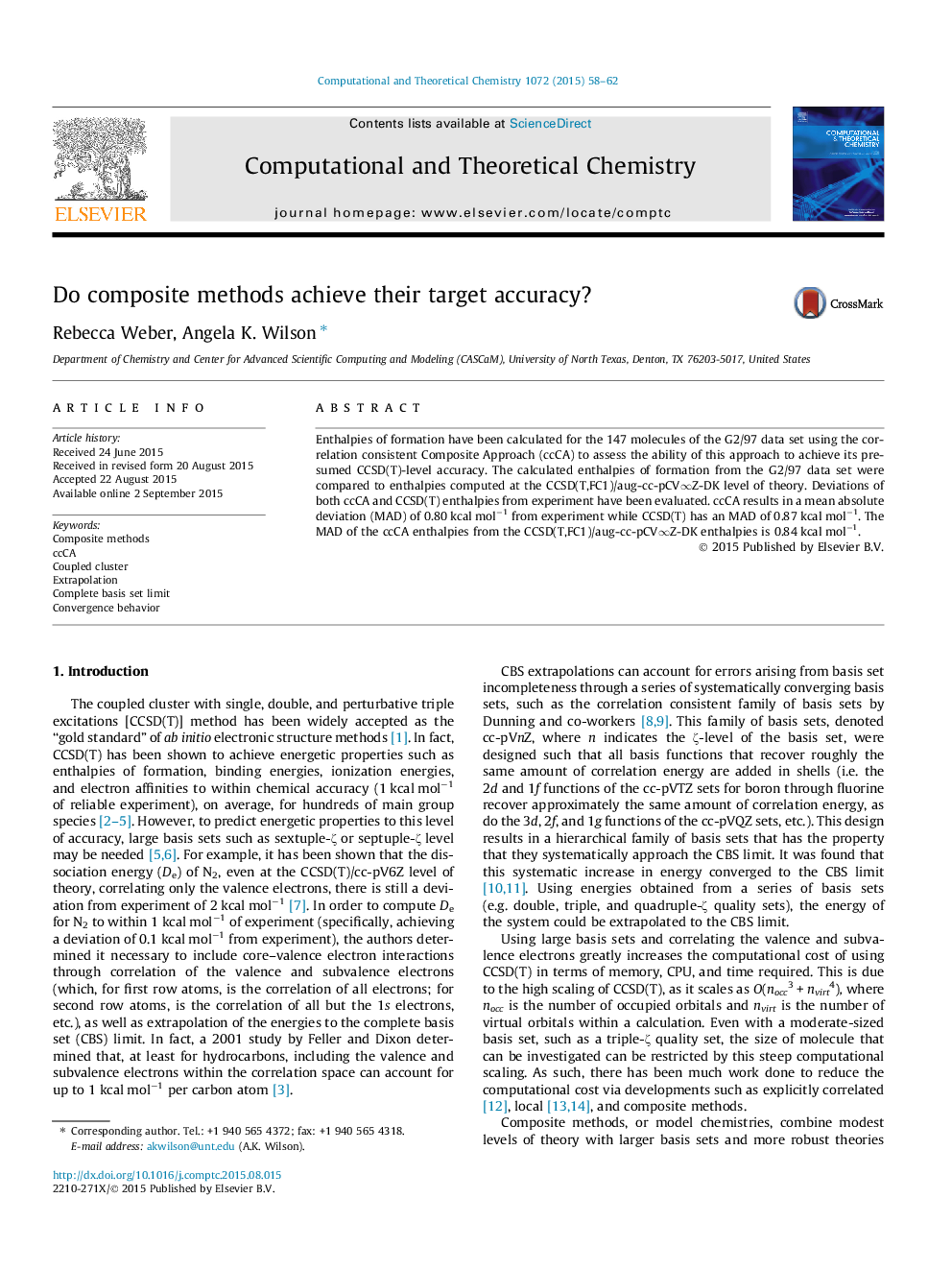| Article ID | Journal | Published Year | Pages | File Type |
|---|---|---|---|---|
| 5393121 | Computational and Theoretical Chemistry | 2015 | 5 Pages |
â¢ccCA achieves an MAD of 0.80 kcal molâ1 for the ÎHf's of the G2/97 molecule set.â¢CCSD(T,FC1)/aug-cc-pCVâZ-DK has an MAD of 0.87 kcal molâ1 for the G2/97 set.â¢ccCA can result in >90% computational time savings over CCSD(T).
Enthalpies of formation have been calculated for the 147 molecules of the G2/97 data set using the correlation consistent Composite Approach (ccCA) to assess the ability of this approach to achieve its presumed CCSD(T)-level accuracy. The calculated enthalpies of formation from the G2/97 data set were compared to enthalpies computed at the CCSD(T,FC1)/aug-cc-pCVâZ-DK level of theory. Deviations of both ccCA and CCSD(T) enthalpies from experiment have been evaluated. ccCA results in a mean absolute deviation (MAD) of 0.80 kcal molâ1 from experiment while CCSD(T) has an MAD of 0.87 kcal molâ1. The MAD of the ccCA enthalpies from the CCSD(T,FC1)/aug-cc-pCVâZ-DK enthalpies is 0.84 kcal molâ1.
Graphical abstractDownload high-res image (115KB)Download full-size image
